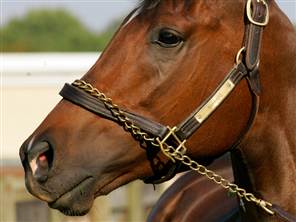Ray Paulick writes the following in a post for the Paulick Report:
On Friday, I suggested that time is running out for the industry to act on the long-neglected issue of Thoroughbred aftercare. On almost a weekly basis, our industry is being smeared, deservedly or not, by heartless cruelty to horses by what I can only say are evil people.Paulick is the one who broke the story that went viral about Kelsey Lefever, the Pennsylvania woman who reportedly sent Thoroughbred racehorses to slaughter instead of rehoming them as she promised their owners she would do.
The new world of instant communications and social networking spreads these stories like a fast-moving virus, and whether or not the Thoroughbred industry is at fault, all of us are cast in a shadow. Thoroughbred racing is, like it or not, a poster child for the equine world. The lack of response to animal welfare crises from the Thoroughbred industry, borne out of resistance to collaboration or centralization, only makes these matters worse. Our image is getting killed, because people everywhere love horses, and the message we are sending them is, “We don’t really care.”
He adds:

Can Thoroughbred industry leaders stop the abuse of horses or provide for every unwanted equine for the rest of its life? Of course not. But it would be reassuring for the industry to have a program that says, “We are doing everything we can.”Ray Paulick is that rare racing man who speaks out against racehorse abuse and slaughter, and we are grateful for his voice.
Now that would be a great legacy for Barbaro.
A big reason the public feel negatively about the Thoroughbred industry is highlighted by the very story that Paulick broke.
Where were the spokespersons for the major horse racing organizations, of which there are so many who make money off the backs of these horses, stating their outrage and denouncing what Lefever did? There were none to be heard that we came across.
The reason for this appears to us — and most likely to quite a few others — that it is because these organizations are well aware that Thoroughbreds are routinely sent to slaughter, backhanded or otherwise, and simply condone it.
In my opinion, central to it all is the way the horse racing industry generally thinks about the racehorse. To breeders, agents, owners, trainers and more than a few jockeys, the horses are seen as a commodity, an ego booster, but more than anything else, a money spinner.
In countries where the treatment of Thoroughbreds is at least taken into some sort of consideration, horse racing is doing more than just managing to stay afloat in challenging economic times, it is actually growing.
Read full post at the Paulick Report >>









No comments:
Post a Comment